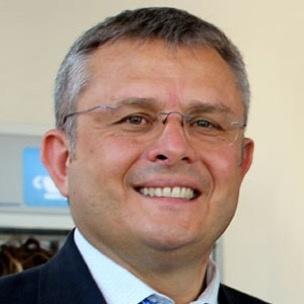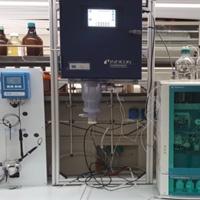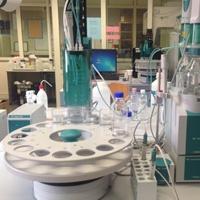Strengthening of the Italian Research Infrastructure for Metrology and Open Access Data in support to the Agrifood
UNINA2 - Metrological lab of food and materials
(Reference person: Marco Trifuoggi)
The OU activities are carried out by laboratory ACE - Analytical Chemistry for the Environment (http://www.ace.unina.it/), with competences ranging from the safety, authenticity, and traceability of foods to environmental safety, human health, and food contact materials. The Metrological Lab expertise comprises analytical methods for the quantitation of organic and inorganic pollutants; analytical techniques for metabolites or metal and micro-pollutant quantification in air, water, soil, food, and biological fluids; mechanisms of formation of by-products from disinfecting agents (DPBs) in water. ACE Lab is certified according to UNI EN ISO 9001:2015 and accredited in accordance with UNI CEI EN ISO/IEC 17025:2018. The Metrological Lab is equipped with several Liquid Chromatographs (IC, HPLC), spectrophotometers (UV-Vis and FTIR), two Inductively Coupled Plasmas (ICP-OES, ICP-MS), a polarograph and a flame atomic absorption spectroscopy (FAAS) and a graphite tube atomizer (ETAA) for the determination of inorganic substances. The equipment for determination of organic substances consists of several gas-chromatographs (GC-FID, GC-ECD, GC-MS), including headspace technology and purge & trap system for the volatile organic compounds (VOCs), and a GC-MS-QQQ for the determination of pesticides, PCBs, and other organic pollutants at ppt levels. Several instruments for sampling and field determinations (pH, conductivity, free dissolved oxygen, PM10, etc.) are present for personal and environmental monitoring.

Marco Trifuoggi
Is Associate Professor of Analytical Chemistry at the Department of Chemical Sciences of the University of Naples Federico II. He is Scientific Head of the multidisciplinary research group ACE-Analytical Chemistry for the Environment, with UNI EN ISO 9001:2015 certified and UNI EN ISO 17025:2018 accredited Quality System. The main research topics are: (i) Environmental studies and monitoring; (ii) Quality, Accreditation and Metrology; (iii) Study of trace inorganic contaminants, metals, and rare earth elements; (iv) Study of persistent organic contaminants; (v) Traceability in the food chain. He is a member of the working group “Chemical and chemical-physical methods” of the UNICHIM “Water Quality” Committee. He is involved as a participant or proponent in various research projects (PRIN, PON, etc.) including METROFOOD-IT of the PNRR-MUR. He is referent for sustainability of Federico II University. Peer-Reviewed Publications (ISI-JCR) with Impact Factor [180]; H-index: 28; Citations: 2351 (Scopus November 2022).

Antonella Giarra
Is Graduate Technical profile Staff of the Department of Chemical Sciences of the University of Naples Federico II, for the technical-scientific and data processing area. She is Referent of Instrumentation of the multidisciplinary research group ACE-Analytical Chemistry for the Environment. The main research topics are: (i) Study and monitoring of atmospheric particulate matter; (ii) Quality, Accreditation and Metrology; (iii) Study of inorganic trace contaminants, metals and rare earths in the environment and their effects on human health, with experience in chromatographic (IC, GC) and spectroscopic (UV-Vis, ICP-MS, ICP- OES, MP-AES) techniques. She was the Italian and international winner in 2018 of the Metrohm Young Chemist Award with research for the determination of levoglucosan in atmospheric particulate matter. Peer-Reviewed Publications (ISI-JCR) with Impact Factor [29]; H-index: 10; Citations: 300 (Scopus November 2022).

Maria Toscanesi
Is Graduate Technical profile Staff of the Department of Chemical Sciences of the University of Naples Federico II, for the technical-scientific and data processing area. She is researcher of the multidisciplinary research group ACE-Analytical Chemistry for the Environment. The main research topics are: (i) Quality, Accreditation and Metrology; (ii) Monitoring of persistent organic and inorganic contamination in various environmental compartments; (iii) Study of persistent organic contaminants, VOCS, PAHs, PCB, PBDE, pesticide, drugs and emerging organic contaminants in the environment and their effects on human health, with experience in applying chromatographic techniques (GC, HPLC) coupled with different detectors (MS, MS/MS, UV-Vis, Flu) and spectroscopic (UV-Vis, FT-IR) techniques. Since 2018 she has been dealing with the characterization and abatement of recalcitrant organic substances in tanning and civil wastewater. She received her PhD in May 2022. Peer-Reviewed Publications (ISI-JCR) with Impact Factor [48]; H-index: 13; Citations: 544 (Scopus November 2022).







